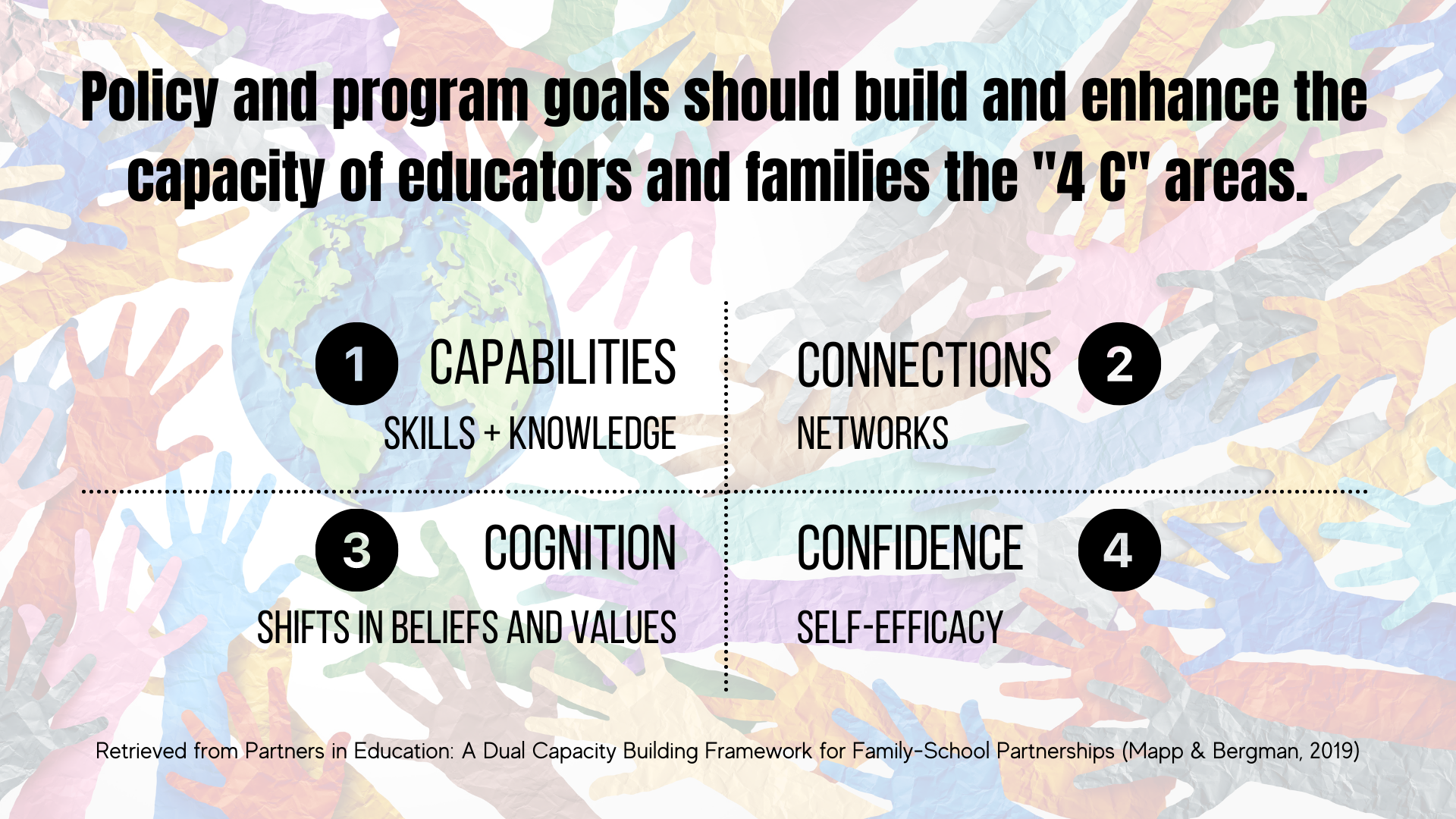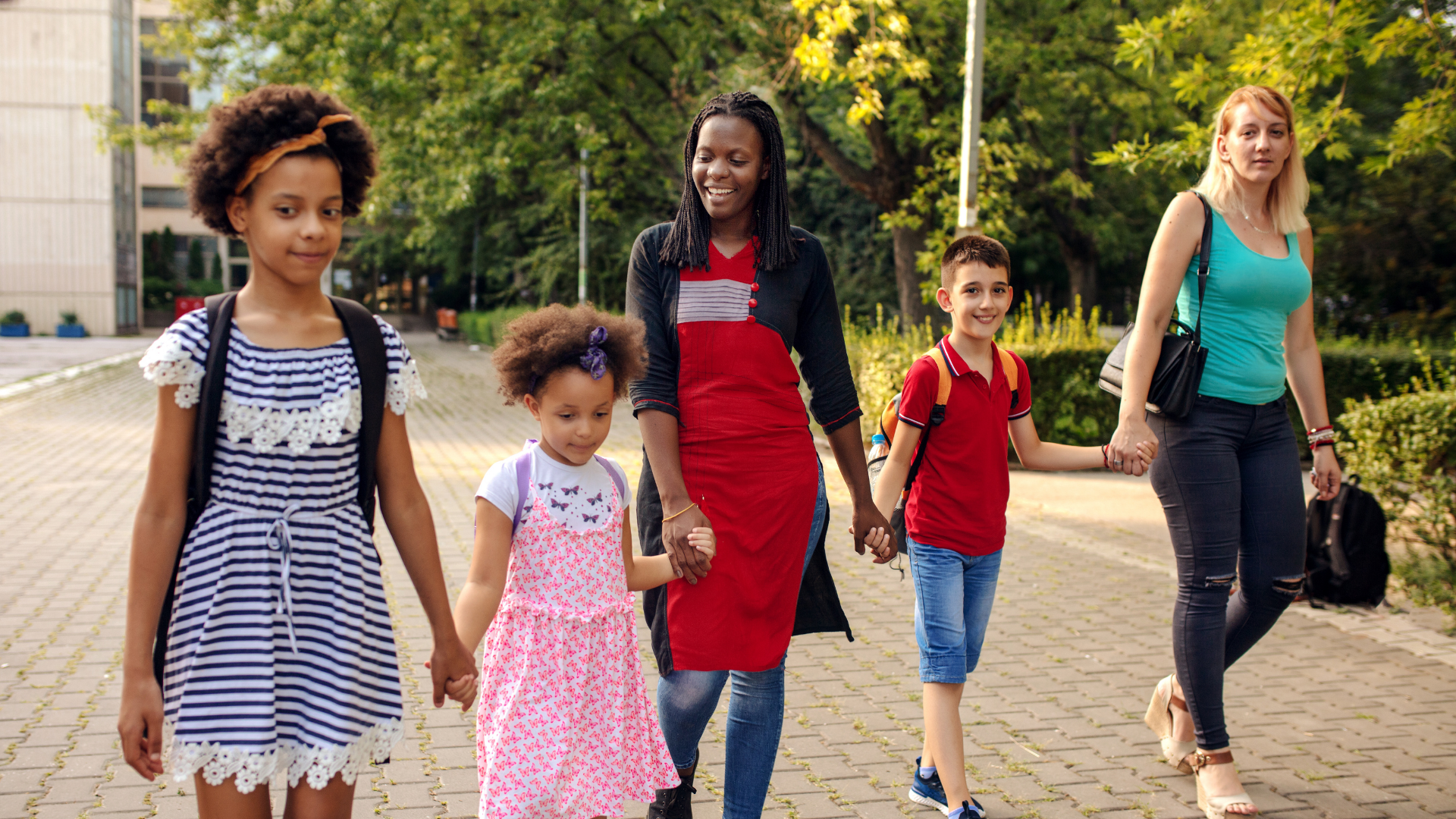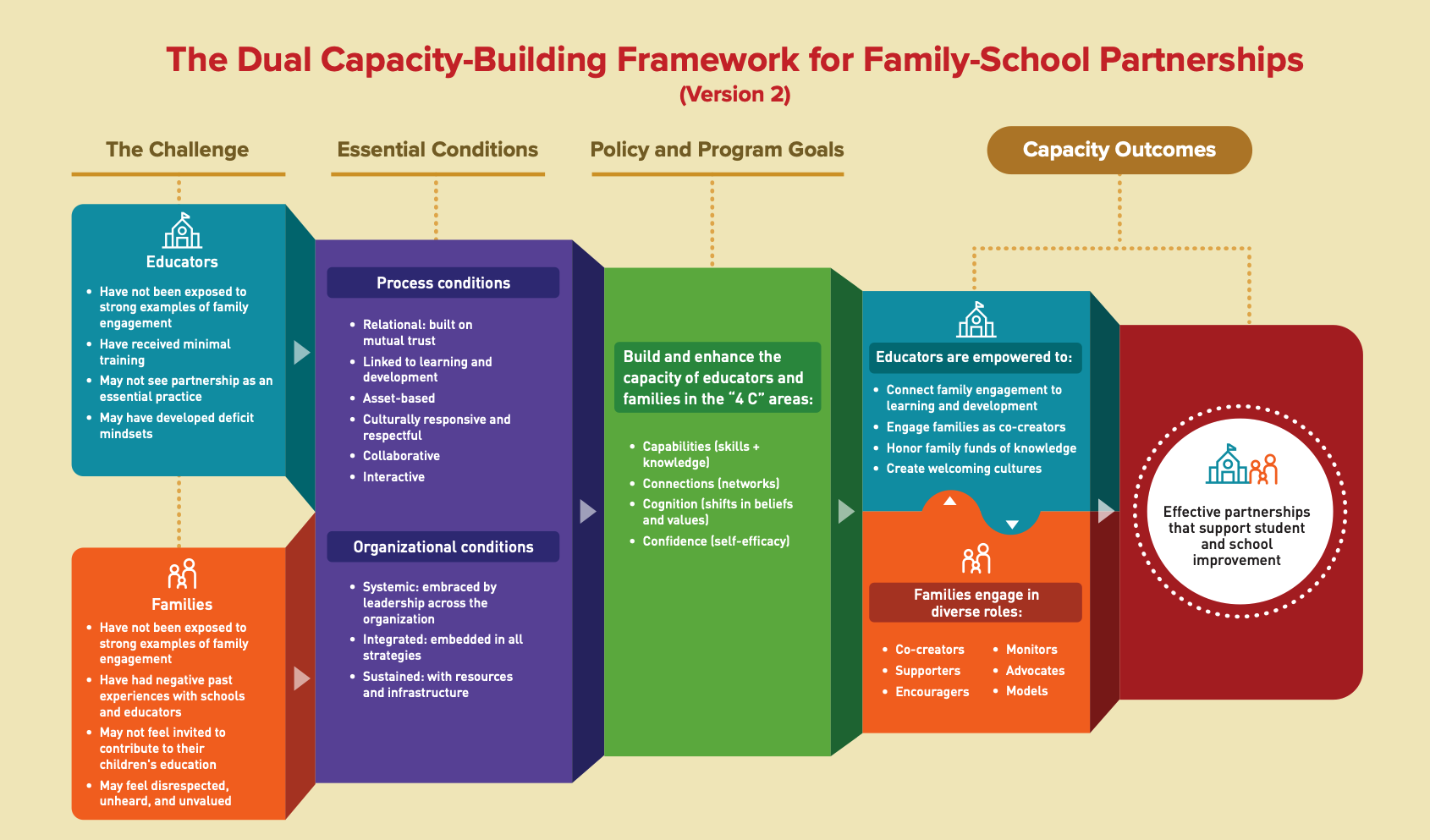The Framework builds on existing research suggesting that partnerships between home and school can only develop and thrive if both families and staff have the requisite collective capacity to engage in partnership. Many school and district family engagement initiatives focus solely on providing workshops and seminars for families on how to engage more effectively in their children’s education. This focus on families alone often results in increased tension between families and school staff: families are trained to be more active in their children’s schools, only to be met by an unreceptive and unwelcoming school climate and resistance from district and school staff to their efforts for more active engagement. Therefore, policies and programs directed at improving family engagement must focus on building the capacities of both staff and families to engage in partnerships.

What are the "4 C" areas? Read on for more details (p. 10-11, Mapp & Kuttner, 2013).
| Capabilities (skills + knowledge) |
|---|
| "School and district staff need to be knowledgeable about the assets and funds of knowledge available in the communities where they work. They also need skills in the realms of cultural competency and of building trusting relationships with families. Families need access to knowledge about student learning and the workings of the school system. They also need skills in advocacy and educational support." |
| Connections (networks) |
| "Staff and families need access to social capital through strong, cross-cultural networks built on trust and respect. These networks should include family–teacher relationships, parent–parent relationships, and connections with community agencies and services." |
| Cognition (shifts in beliefs and values) |
| "Staff need to be committed to working as partners with families and must believe in the value of such partnerships for improving student learning. Families need to view themselves as partners in their children’s education, and must construct their roles in their children’s learning to include the multiple roles described in the Framework." |
| Confidence (self-efficacy) |
| "Staff and families need a sense of comfort and self-efficacy related to engaging in partnership activities and working across lines of cultural difference." |
How can the MTSS framework of practices, data, and systems support both schools and the families in building the collective capacity of schools and families to effectively engage?
- Evidence-based practices should be used to build the 4 Cs of capacity. For example, school and district staff need cultural competency skills in order to be capable of engaging with families. To provide those skills to staff, school and district leaders in charge of professional learning should be sure to select evidence-based practices shown to improve cultural competence and matched to the population of families they serve.
- Leaders responsible for professional learning should also ensure that systems are in place to give staff the time and space to train, implement new practices with families, and reflect on implementation efforts. Systems should also include time and space for families to improve collaboration skills, connect with school staff, and engage meaningfully within the school community. For example, systems should provide the necessary structures to build networks between educators and families, including family-teacher and parent-parent relationships, as well as the community at large.
- A critical element of Multi-Tiered System of Supports is the use of data to guide decision-making. The 4 C areas of the Dual Capacity-Building Framework for Family-School Partnerships should be used to "develop a set of criteria from which to identify metrics to measure and evaluate policy and program effectiveness" (p. 11, Mapp & Kuttner, 2013). Possible criteria to measure can include (but is not limited to) increases in comfort level when engaging, increased numbers of families and staff from diverse backgrounds in leadership positions, increased levels of trust, and staff increases in knowledge and understanding of culturally responsive teaching (practices and pedagogy).
-

Essential Conditions
Return to the Essential Conditions for a refresher on the process and organizational conditions needed for effective family-school partnerships.
-

Capacity Outcomes
Review the Capacity Outcomes that should emerge when the Essential Conditions have been met and Policy and Program Goals have been established.
-

The Framework
For resources on setting goals on the 4 C’s, visit the Dual Capacity-Building Framework for Family-School Partnerships Policy and Program Goals page.
In addition to the measurement ideas proposed by the Dual Capacity-Building Framework website, consider existing sources of data available to schools and districts through RIDE's SurveyWorks.
2 From Mapp, K.L. & Bergman, E. (2019). Dual capacity-building framework for family-school partnerships (Version 2). Retrieved from: www.dualcapacity.org.
